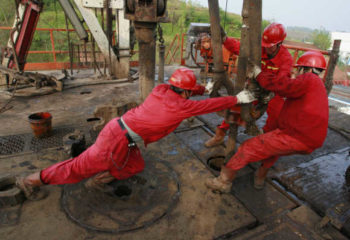
Saudi oil Minister, Khalid al-Falih said on Tuesday that oil market fundamentals were improving as an agreement to curb supply by OPEC and non-OPEC producers took effect.
But he said the Organization for the Petroleum Exporting Countries (OPEC) would not let rival producers take advantage of the cuts to underwrite their own production investments. The group is expected to meet again in May, when it could consider extending the production curbs.
Saudi Arabia had cut beyond what it had pledged in the agreement and brought the kingdom’s output below 10 million barrels per day, he said.
“We should not get ahead of the market,” Falih told a group of oil industry executives at the CERAWeek energy conference.
Overall, he said the production reductions have had their intended effect, citing greater price arbitrage between east and west oil markets that “indicate the cuts are biting.”
He said there are signs of “green shoots” of oil investment in the United States although he cautioned that a fast response from the U.S. shale industry could be discouraging for needed investment in multiyear, long-term projects in other oil supply sources outside of shale.
He said Saudi Arabia does not want OPEC to intervene in the oil market to address long-term structural shifts, but would support measures to address “short-term aberrations.”
The production-reduction pact, which was joined by non-OPEC countries including Russia and Kazakhstan, was intended to reduce global output by about 1.8 million bpd, and bring supplies closer to demand. The six-month agreement originally took effect on Jan. 1.
The production-reduction agreement was put together “for the benefit of all, and needs to be addressed by all,” he said.
Falih also said the initial public offering of Saudi Aramco remains on track and “we expect it to take place in 2018.” The IPO could value the energy giant at between $1 trillion and $1.5 trillion, analysts have estimated.